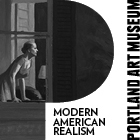
|
||
|
Portland art blog + news + exhibition reviews + galleries + contemporary northwest art
|
||
Weekend links: Polke, Olsen, Ford Fellowships We have a great many in-depth pieces for you this week but before we get to those let's catch up with the weekend:
Sigmar Polke has passed, Roberta Smith has the obit. During the 90's he was undoubtedly the most copied artist in art schools but I noticed how he had somehow fallen off the map lately... accept no imitations, though it is a sign of his success. Here is the website for his 1999 works on paper show at MoMA. Expect a major retrospective. Then there's this long piece on PAM's excellent education director Tina Olsen in the Oregonian. It's worth reading despite the cringe inducing line, "Olsen seems like a mother gently chiding her children..." Now Tina is a lot of things but just because she's the only woman in the room doesn't make her motherly. Few mothers use the word "agenda" when being motherly. Frankly, that just sounds like someone who means business simply getting down to business. I mention this because several women were a bit incensed by this and have always felt a kind of lurking sexism in David's writing (though more benignly he's really just pandering to the O's demographics). To give him some credit though... he's right, Tina will be a museum director some time in the future (if she wants to be) and Portland is very lucky to have her for now... PORT singled her out last year in our new faces to watch list. Last but not least The Hallie Ford Foundation has announced their first visual arts fellowship recipients; David Eckard, Daniel Duford and Heidi Schwegler. Each receives 25,000 and those three are surprisingly "not stuffy" choices... each being in the prime of their careers. Also, none of them has representation despite the fact that Eckard and Schwegler have produced some of the most adept show's in recent history. Eckard recently won the 19th Bonnie Bronson fellowship and Schwegler was THE biggest breakout star of the Portland changing 1999 Oregon Biennial (nothing like 11 years for overdue recognition). Duford is a darling amongst a few curators (he's bright) but his work hasn't really gone to the same levels of originality that Schwegler and Eckard's work has. I characterize them as a series of ok attempts at comic books and graphic novels transposed to the art world (a subculture that curators are anxious to tap). They don't stand up that well against the world class comic book talent in Portland but maybe this award will help him reach his potential? Posted by Jeff Jahn on June 14, 2010 at 10:05 | Comments (4) Comments Re: The Hallie Ford Fellowships- Posted by: exile Hi Jeff, sorry about writing late about this -- I've been out of town and didn't have time before now. About your comments on D.K.'s piece about Tina Olsen: "he's really just pandering to the O's demographics." Do you mean that? Hope not. Or, how do you mean that? Strikes me as awfully condescending, and just flat-out wrong. "Pandering?" "The O's demographics?" Speaking as one who spent a career in daily journalism, I'm just a little exhausted by the assumption on the part of far too many arts insiders that the readers and the writers/editors of newspapers are somehow dumber than your average oyster. The compelling, driving force of daily journalism is that a large gathering of intelligent and interested citizens will find enough common cause to create a reading/thinking community that roughly corresponds to the body politic. That doesn't mean they're experts in most of the subjects they read about. That's the point. They're learning a little more about subjects that might prove vital to them -- even what's going on in galleries and museums. The challenge for the writer/editor is to present complex ideas in an interesting, simplified -- NOT simplistic -- manner. That's not easy, and everyone who's taken a whack at it has failed more than once. D.K. doesn't deserve that kind of casual swipe. Criticize him, or me, or anyone who writes in the daily press, on point: That's valid and necessary. But implying that the daily press and its readers are stupid and inconsequential, to be "pandered" to, strikes me as a gross mistake, and it strikes me as self-defeating. If the arts scene persists in thinking of itself as somehow above the hoi paloi who concern themselves with such trivialities as paying their bills and getting their kids through school, it won't grow. It will cut itself off from what should be its natural audience. Call me a small-d democrat, I guess. I write this not to scold but to open a conversation. Who is the audience for art? What assumptions should arts insiders make about that potential audience? How open are the gallery doors? Who decides who gets in and who stays out? Cheers, Posted by: Bob Hicks Bob, thanks for airing your concerns. As to what I wrote, all is in the context of the "mother gently chiding her children" comment, which is the pertinent topic of the post and what I found odd. At no point did I use the words, "dumber" or any of its synonyms. That is simply your sensitivity to a professional issue, which I did not broach. Characterizing my words as a debasement of all newspaper staff is also a tremendous stretch. Overall, I believe that anyone who writes for a living is much smarter than even the brightest oyster... though on certain days (before coffee) a bluepoint could probably beat me at scrabble. Also, David is never going to be replaced by an oyster... and nobody at the Oregonian should ever worry about oysters as a replacement news agency. Kidding aside, I had been bombarded by several women (many of whom make far less money than an editor at the Oregonian) who found that unfortunate turn of phrase cringe inducing. The sheer # who mentioned the post to me after it was put on PORT also indicates there are a lot of women who get put off by what I felt was just an innocent attempt at "softening" the text for a mass audience. Yes, softening is necessary (I do it all of the time too) but sometimes it crosses lines and that is the issue here. Why does an intelligent woman presenting to a bunch of men with an up front "agenda" have to turn into a mother/child characterization? Seriously? There's nothing casual about that question and I was actually sticking up for David by characterizing it as a misfired softening attempt. I consider it a kind of "benign" pandering... remember I did use that word benign. That word "pandering" also seems to be a sticking point... let's just say I come from a more media callous age. I'm openly callous... or maybe callous is the new open? Also I suspect the way all of the major media caved into the Bush admin's actions directly after 911 absolutely killed a lot of people's respect for large news sources. My point is we live in an age where words are a two way street where we all (as savvy consumers of a ton of media) realize a publication is speaking to us through various cues. Thus, all writers pander or tune their words for an audience. I used "pander" because I like pressing buttons and it seems as if it has worked. For example, I do not to write like Rosalind Krauss because I feel that style is pandering to those few with advanced degrees (like myself). It's a kind of professional dialect or code I don't want to use because the average 3rd year BFA student has very little chance of unpacking it. So yes, PORT panders quite openly to a niche audience that is a little sick of highly coded art speak, yet demands the full force of ideas even if that means some high falutin language when necessary. We also cater to an audience that understands that people in Portland's art world generally aren't spoiled fat cats... all of them work hard with too little $$$ and to suggest otherwise is massively innacurate. Point is, publications with any kind of serious audience result from a complex series of choices and there's nothing arbitrary about it. Thus, I'm not condescending. Instead, it is a mild critique from someone who cares. Frankly, I want to see more articles like the one in question because it wasn't the same old one dimensional money oriented story. Topics like the educational role of cultural institutions to the civic body as a whole are too important to be left out of the public eye. Because PORT is interested in deepening the discussion of the visual arts it means we are likely do some head scratching over the perceived characterization of a key cultural and civic leader as some kind of genderized stereotype. It was an article worth taking a minor issue with. Portland deserves to take a look at its most influential citizens and institutions in a serious way that people can understand... esp. beyond just mere dollar signs and showmanship. At the same time the arts deserve respect for their difficult to quantify pursuits. Often the passage of time is the only way to discover what was really worthy, so an open mind and foresight are key to doing any kind of justice to the subject. That's all I was asking, characterizing it as a high/low issue is completely nonproductive... akin to asking a transvestite to being more open to another point of view. Bob, I think your generous act in sharing this is an example of that respect we all yearn for in arts coverage. Simply ask someone from the art world and I bet any percieved high/low divide will disperse. The arts in Portland are probably the place where various social strata and other sterotypes such as genger roles co-mingle with a great deal of openess and lack of polarization. Thank you for prompting this clarification. Posted by: Double J Jeff, thanks -- excellent response. (Maybe I should have said "dumber than your average geoduck," but I didn't want to stick my neck out that far.) I understand that everything you wrote was in context of the original story's "mother" comment, and I'm not arguing with your argument about that, or with the irritation of women artists over it. My strong suspicion is that David had utterly no intention for it to be taken the way it was; that doesn't change the way it came off, or the validity of bringing it up for discussion. Word choices do make a difference. And that's why the juxtaposition of "pandering" and "the O's demographics" struck me as strange. Yes, the paper has a specific (if broad) demographic, and of course it pays attention to who its readers are. But when you talk about that readership in terms of pandering, it strikes me as being dismissive of both the readers and the producers of the copy. Would the O's demographic in this specific case mean male sexist football fans? "Pander" is a word with heavy historical baggage. And, yes, you may be right that my response reflects my own sensitivity to a professional question: I'm willing to entertain that as a distinct possibility. (By the way, I couldn't agree with you more about the mainstream press's abject failure after 9/11. Believe me, that distress was felt bitterly inside the newsroom walls. To a lot of us, Judith Miller will occupy a special niche in journalistic hell.) I'm for precision and accuracy in writing, even though, like all writers, I fail at it frequently. I'm all for accessibility: highly coded art speak, except in those few instances where it's necessary for precision, drives me nuts, too. And, yes, I understand that the art world is hardly a haven for the well-to-do, even if money so often drives the discussions. One serious and successful artist said to me recently (and I'm sure you've heard variations of this), "Artists eat with the rich and sleep with the poor." My point is to break down class warfare, not escalate it. Words. Quite a few years ago, when I was writing about theater full time, an actor I liked and respected came up to me after a show had opened and pointed out to me, with a lot more humor than I might have managed myself, that for the third straight review I'd referred to him in print as "slack-jawed." "Could you PLEASE come up with something else next time?" he asked. I think this is the first time since then I've typed that term out. Posted by: Bob Hicks Post a comment Thanks for signing in, . Now you can comment. (sign out)
(If you haven't left a comment here before, you may need to be approved by
the site owner before your comment will appear. Until then, it won't appear
on the entry. Thanks for waiting.)
|
| s p o n s o r s |
 |
 |
 |
 |
 |
 |
 |
 |
 |
 |
 |
 |
 |
 |
 |
 |

|
Site Design: Jennifer Armbrust | • | Site Development: Philippe Blanc & Katherine Bovee | |


![[TypeKey Profile Page]](http://www.portlandart.net/nav-commenters.gif)